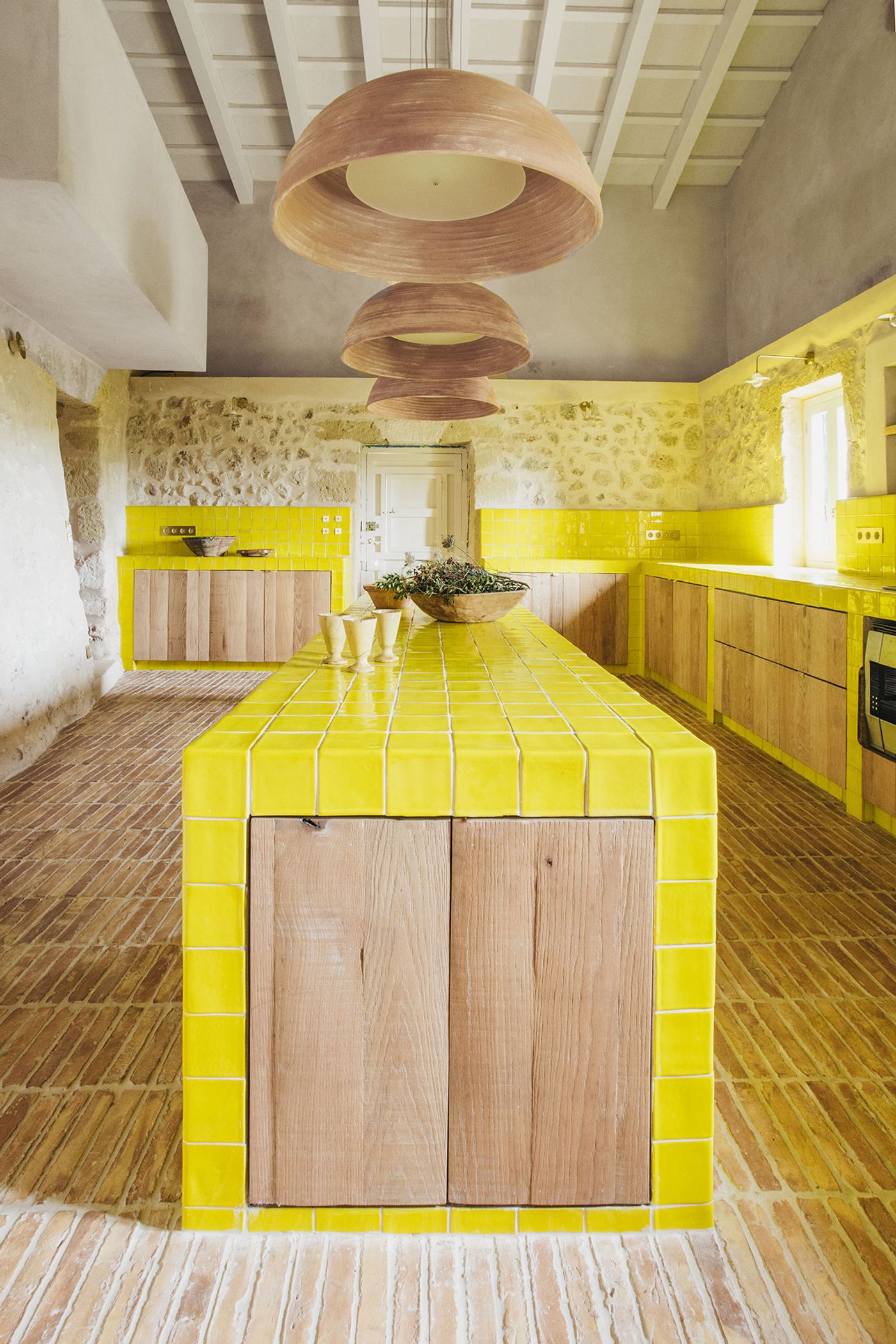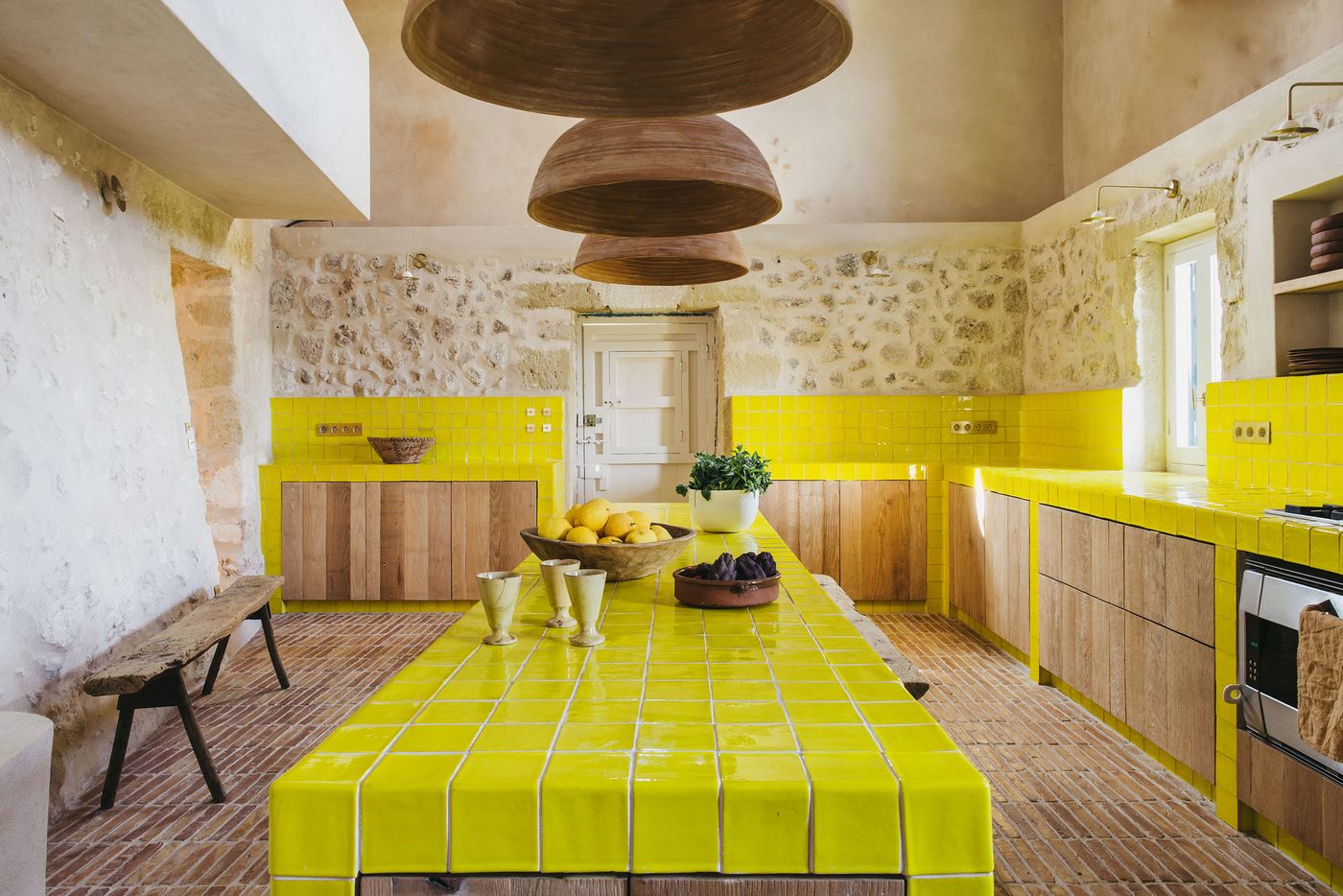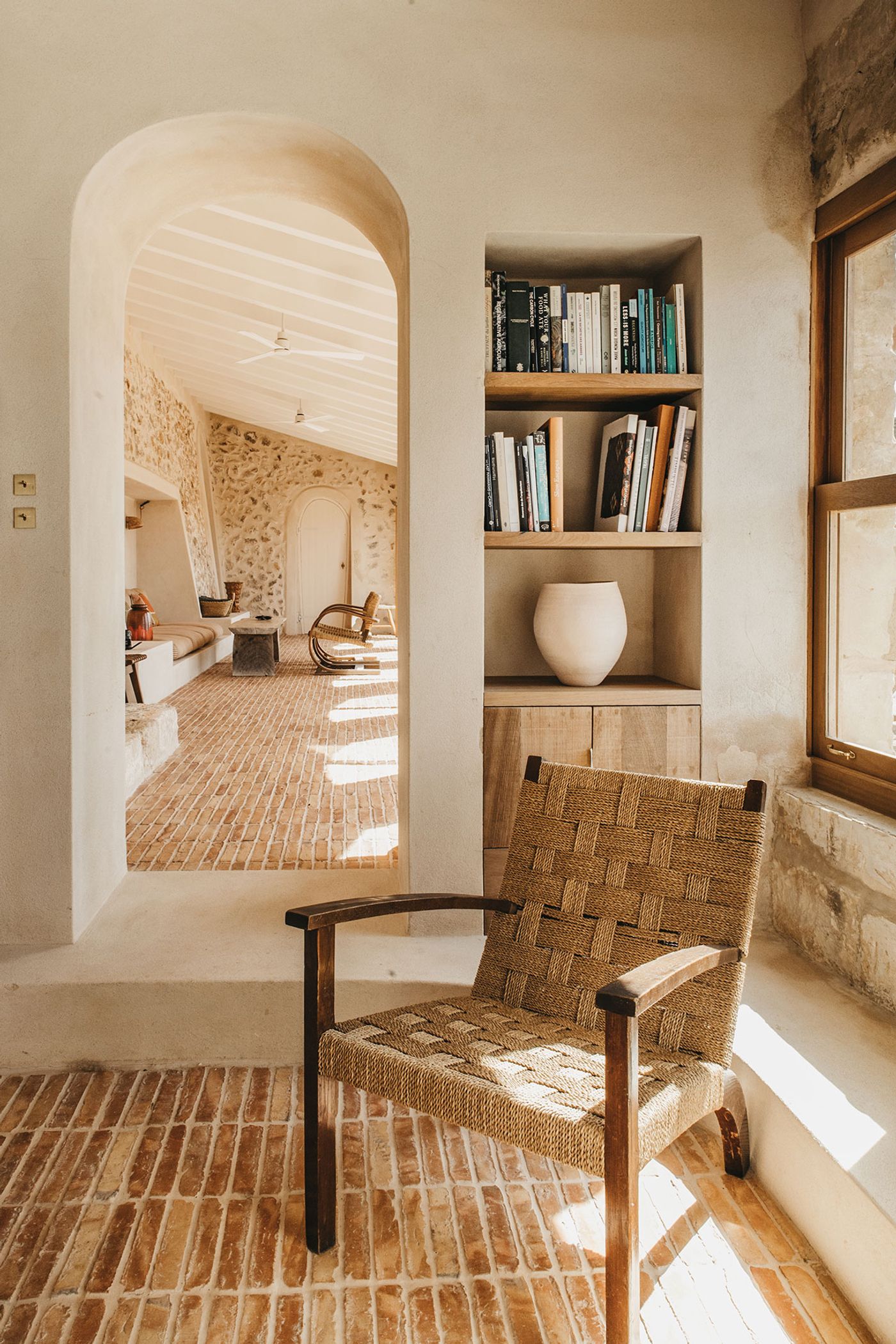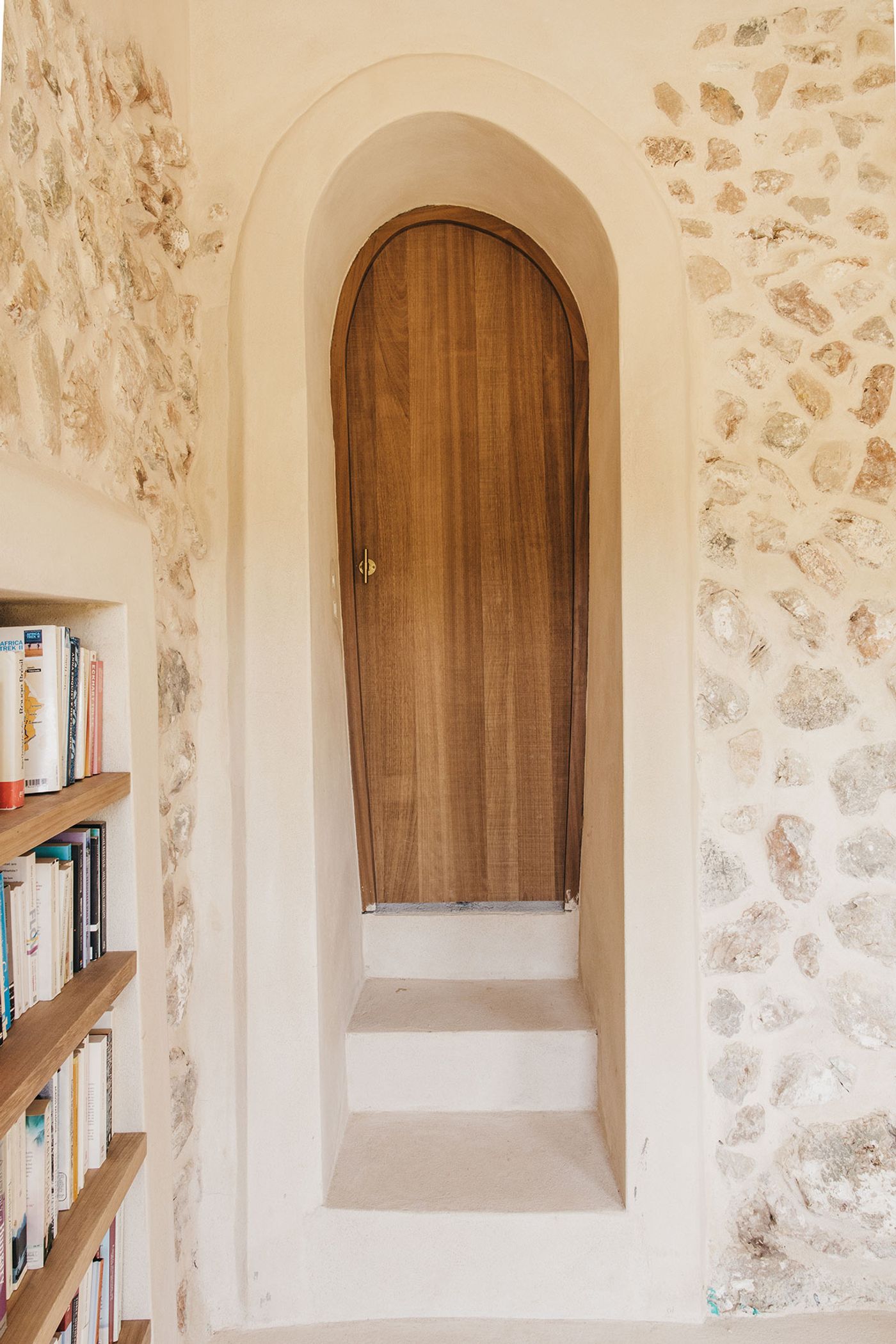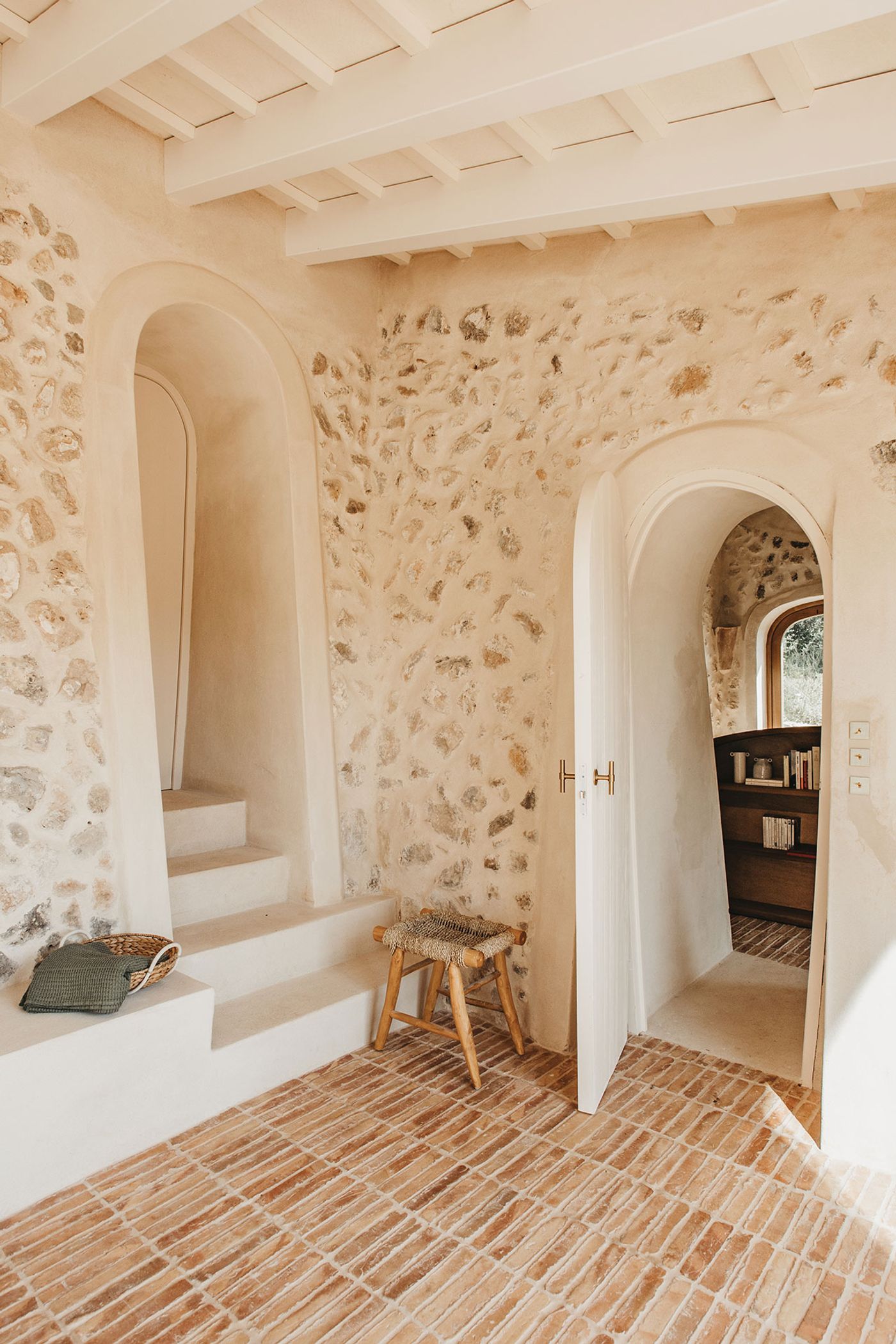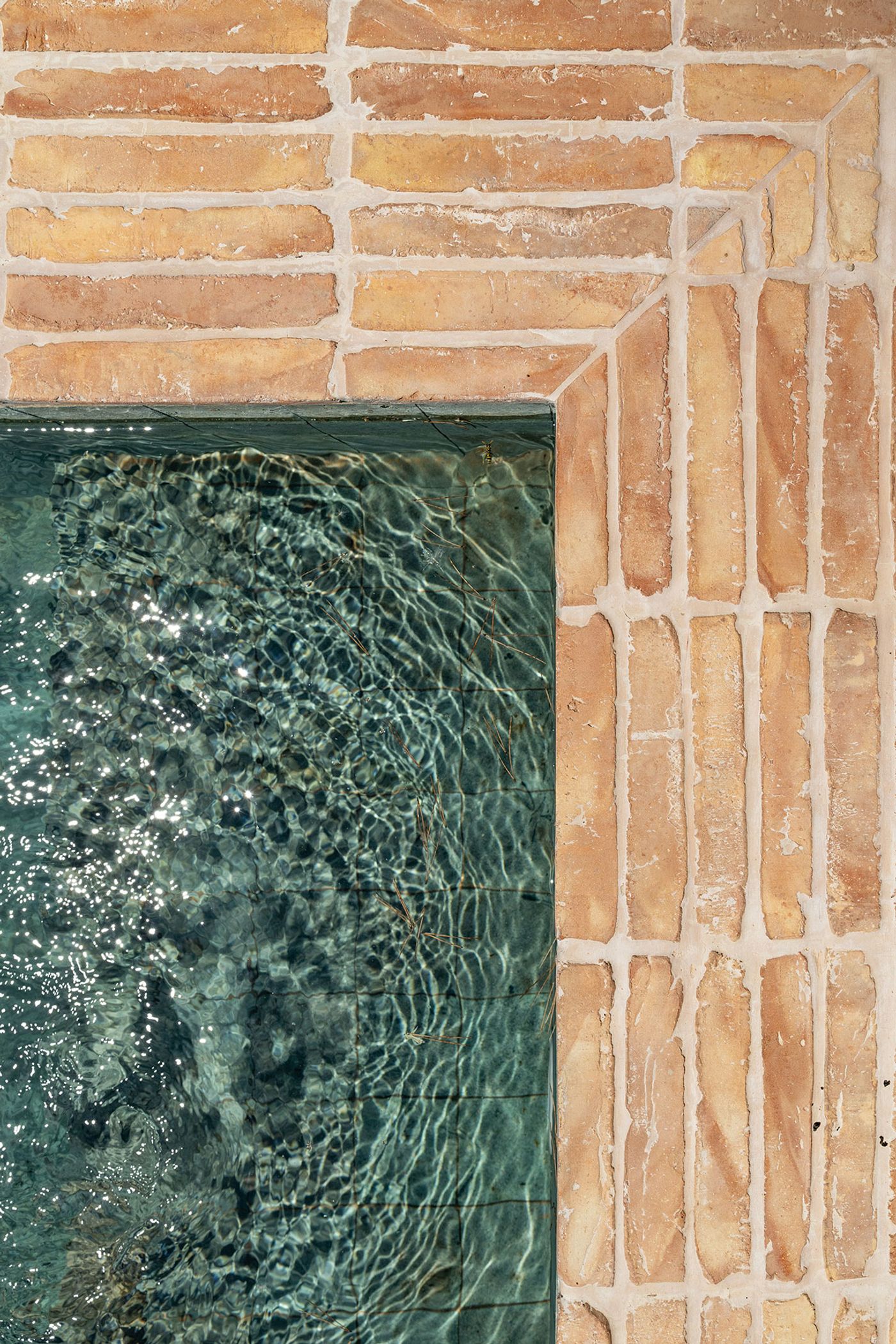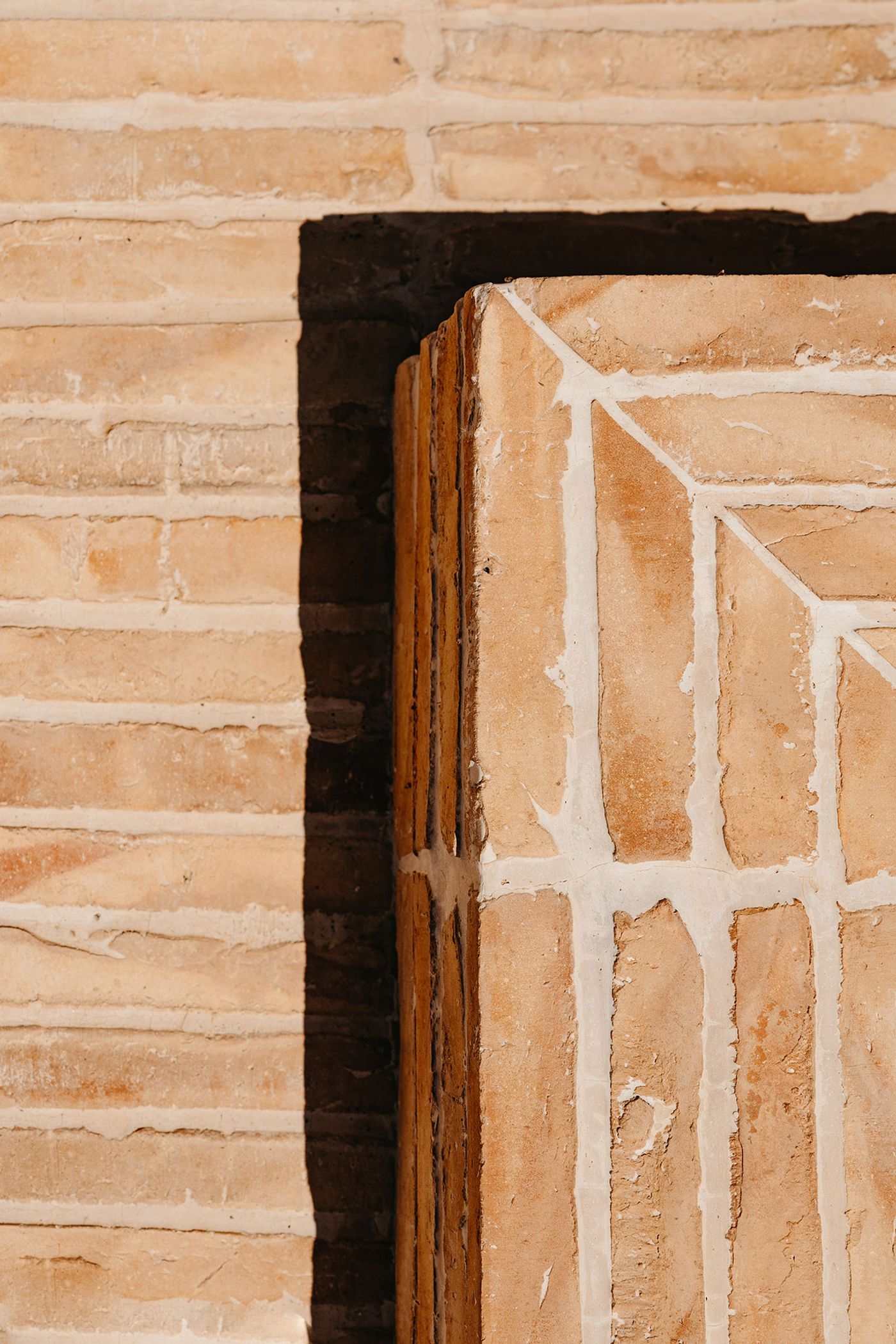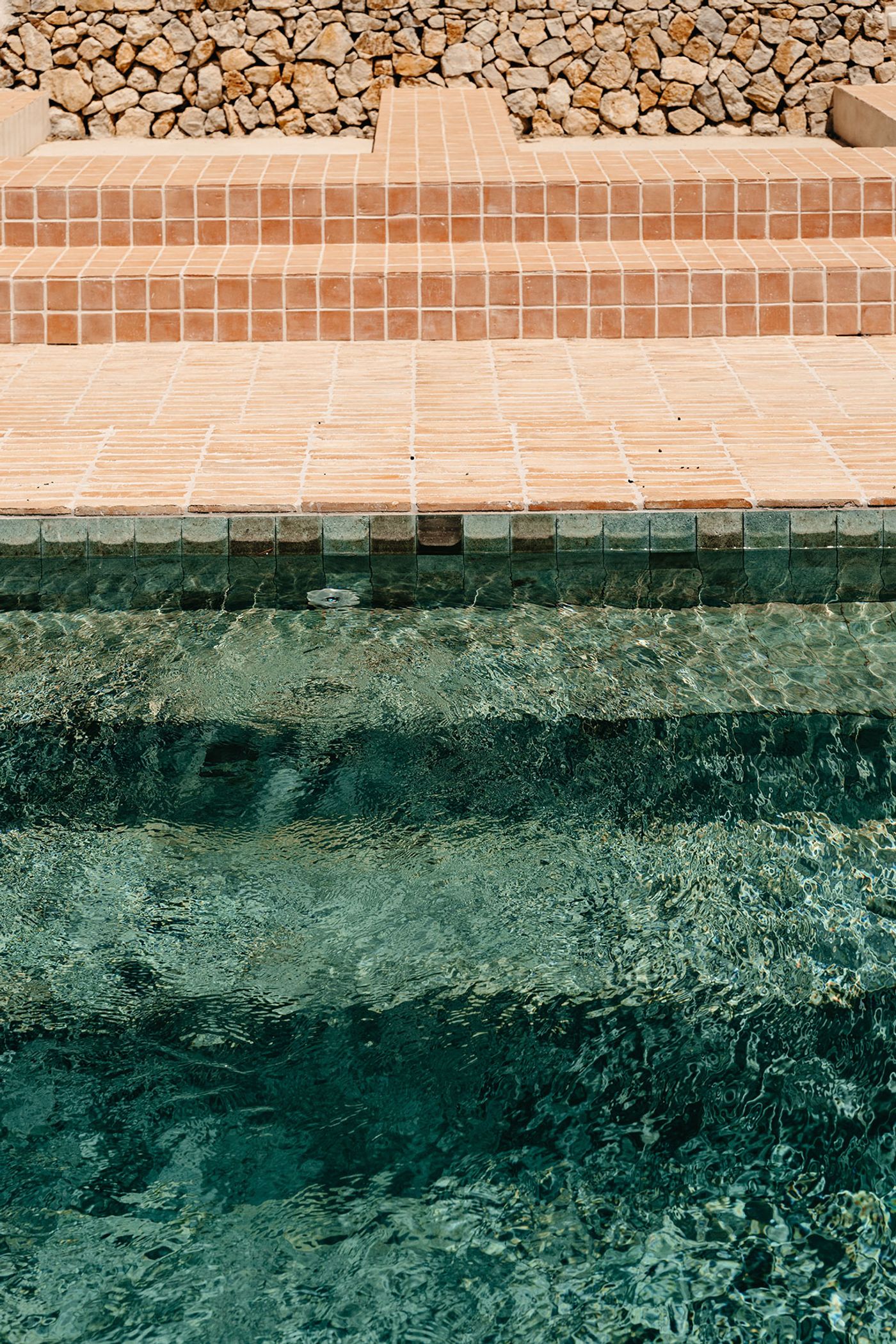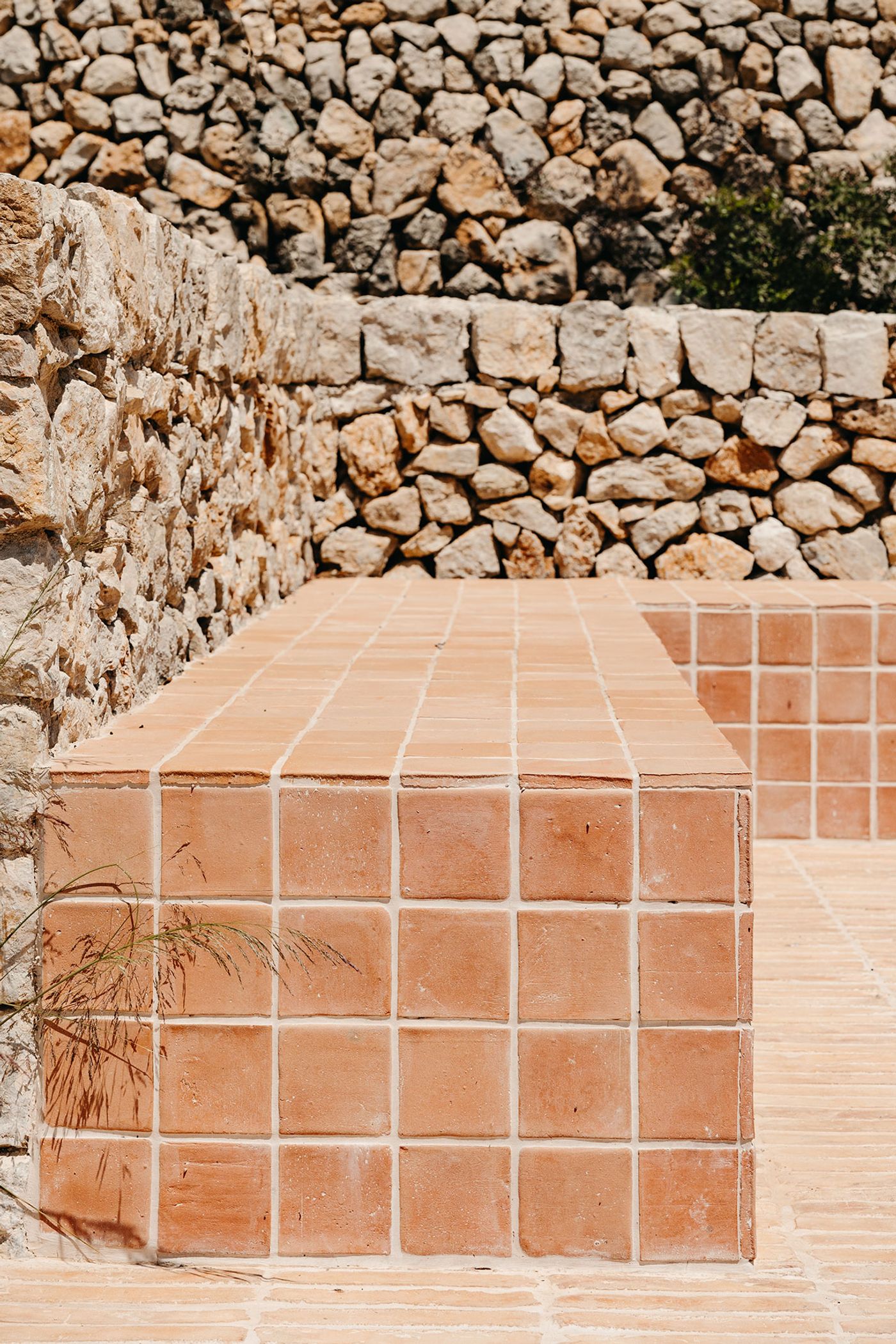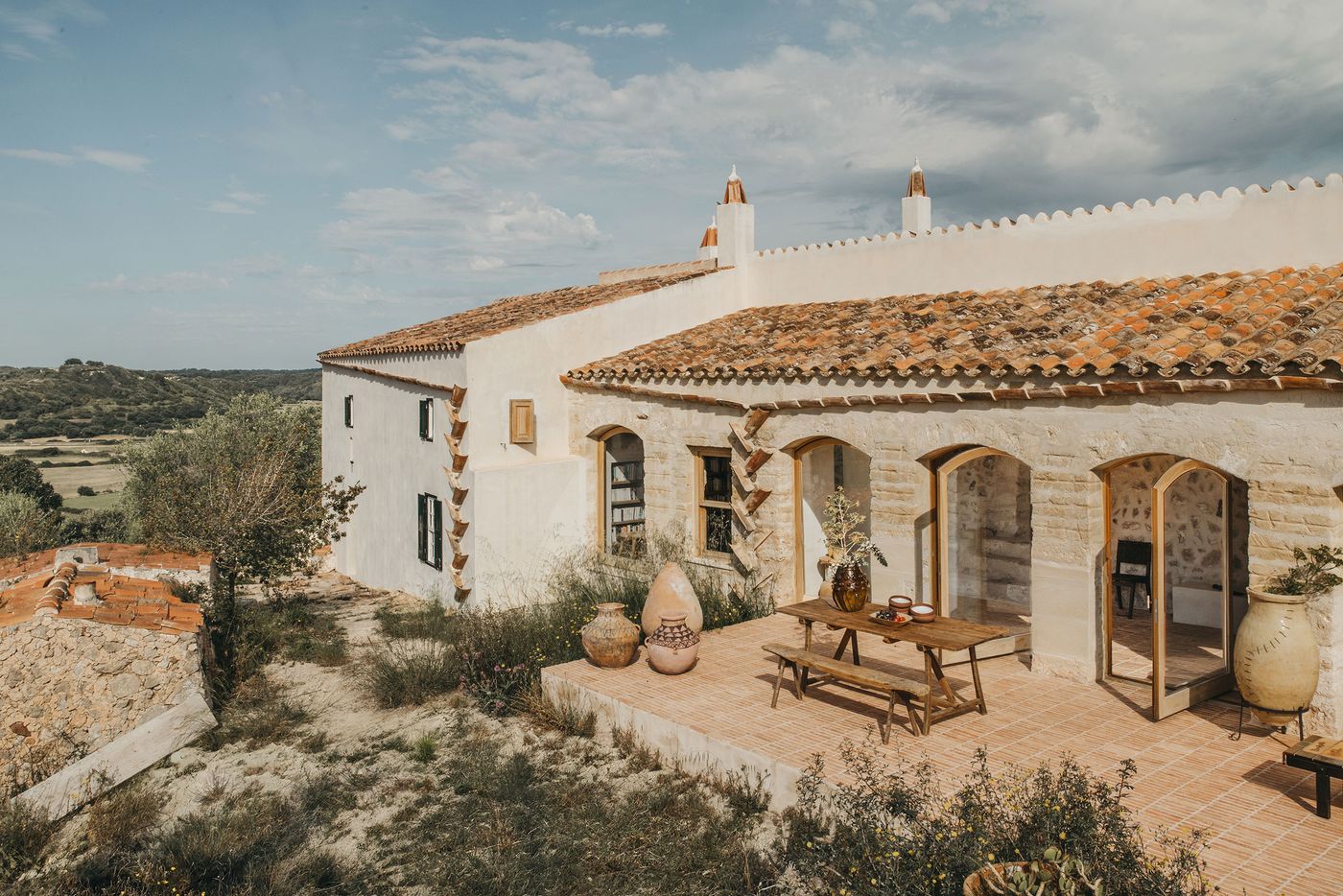
Atelier du Pont's Renovation of a Menorcan Farmhouse is an Ode to Place, Craft and Heritage
Words by Yatzer
Location
Menorca, Spain
Atelier du Pont's Renovation of a Menorcan Farmhouse is an Ode to Place, Craft and Heritage
Words by Yatzer
Menorca, Spain
Menorca, Spain
Location
In the sun-drenched hills of Alaior, Menorca, a 19th century farmhouse has found a second life as a refined summer residence, Estancia San José, courtesy of French architectural practice Atelier du Pont. In collaboration with local architects ARU Arquitectura, the practice’s founding partners, Anne-Cécile Comar and Philippe Croisier, orchestrated the sensitive renovation of the property’s 76-hectare site, which includes a main house and a barn, both emblematic of Menorca’s architectural traditions. Anchored in respect for the site’s history, the design blends raw materials, artisanal craftsmanship, and contemporary accents, resulting in a space that feels both timeless and invigorating.
The original structures, though in a state of ruin, provided a rich tapestry of inspiration. From the faded yellows of the aged ceilings to the rustic charm of the masonry walls, every detail guided the architects’ choices. Most notably, a quaint, curved door inspired one of the renovation’s defining elements: the embrace of organic forms evident in arched portals, doors, and windows through to wall niches and built-in benches, providing a harmonious flow of gentle curves to soften the angular lines and rugged textures that dominate the interiors.
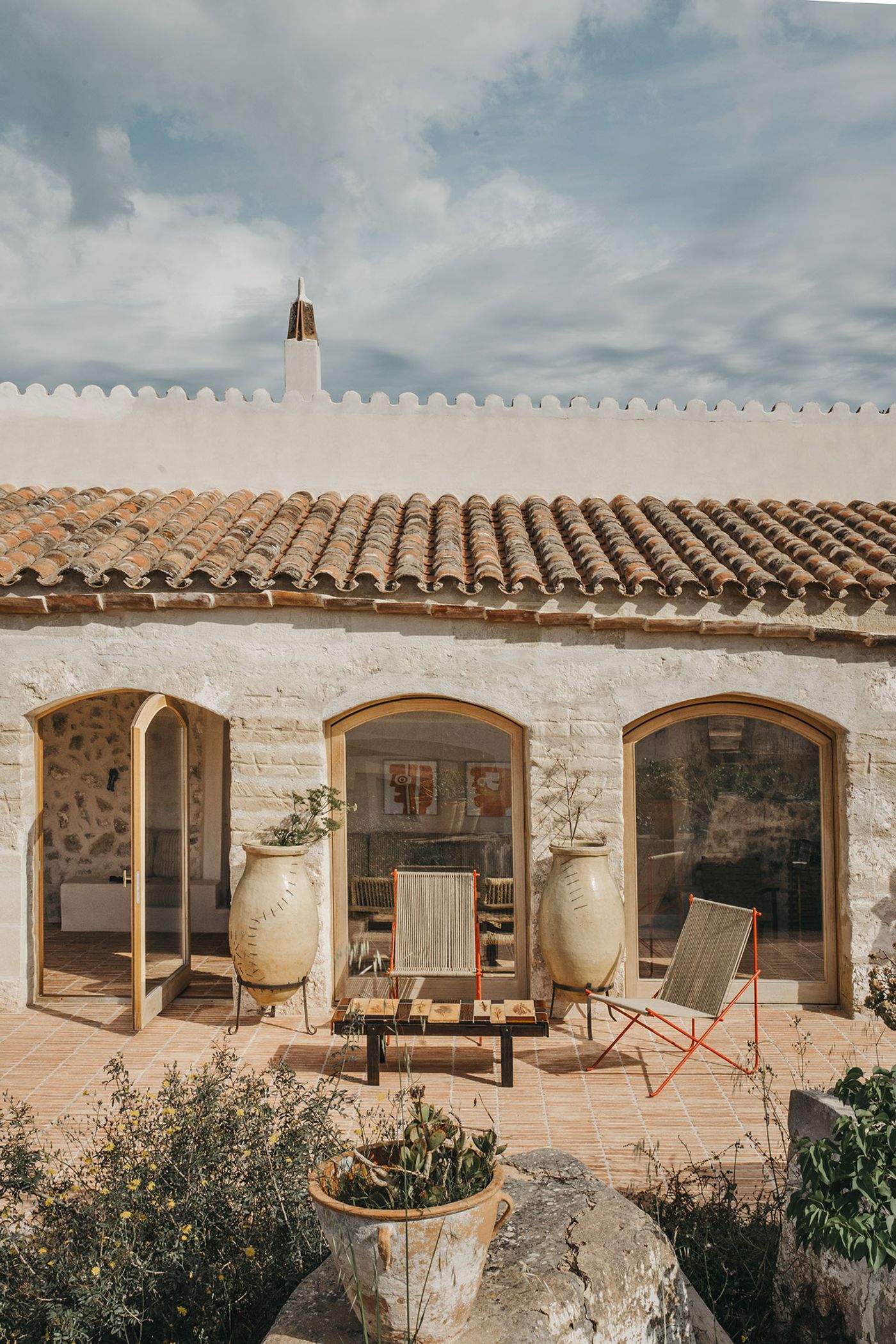
Photography by Maria Missaglia.
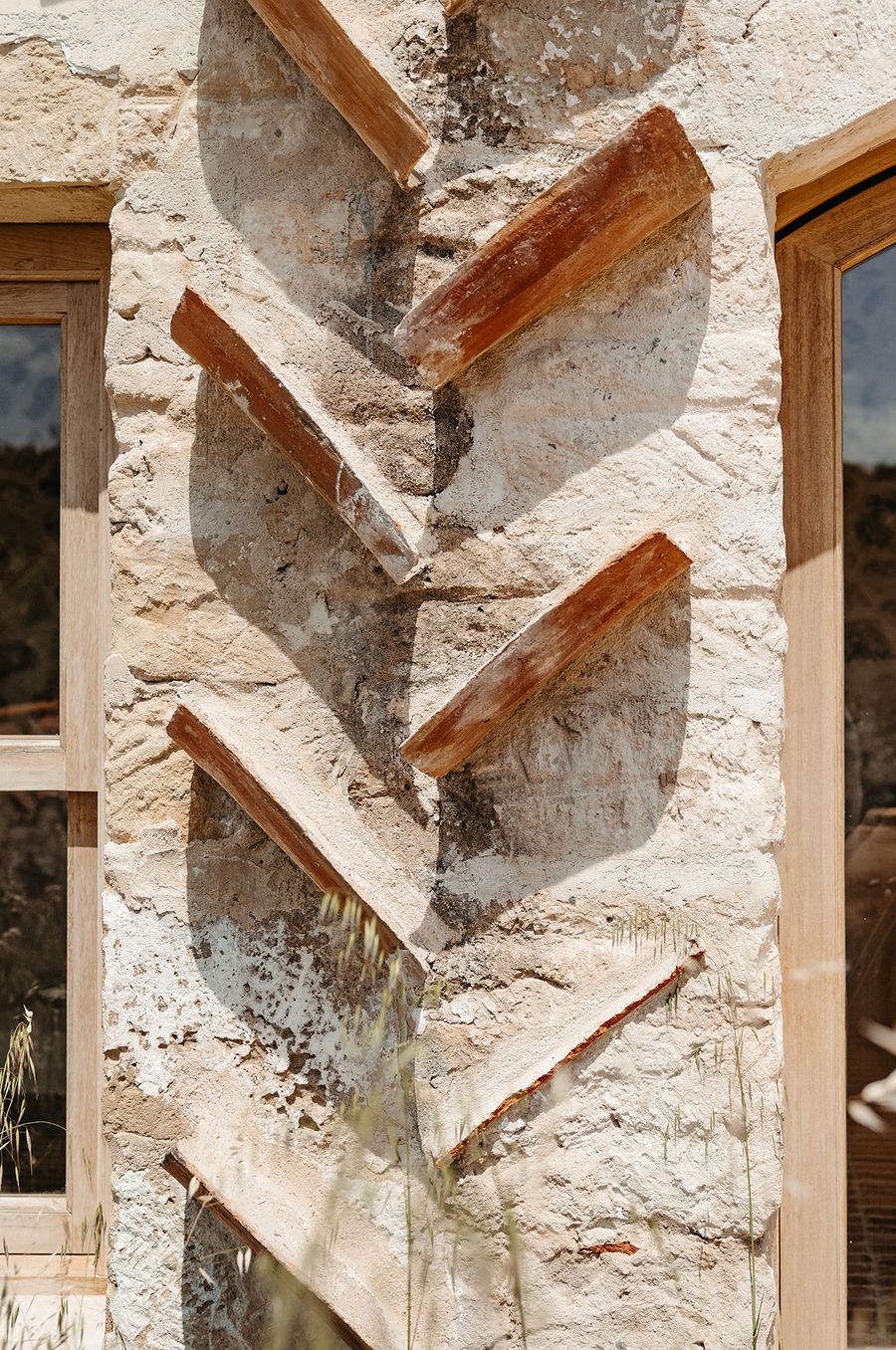
Photography by Maria Missaglia.
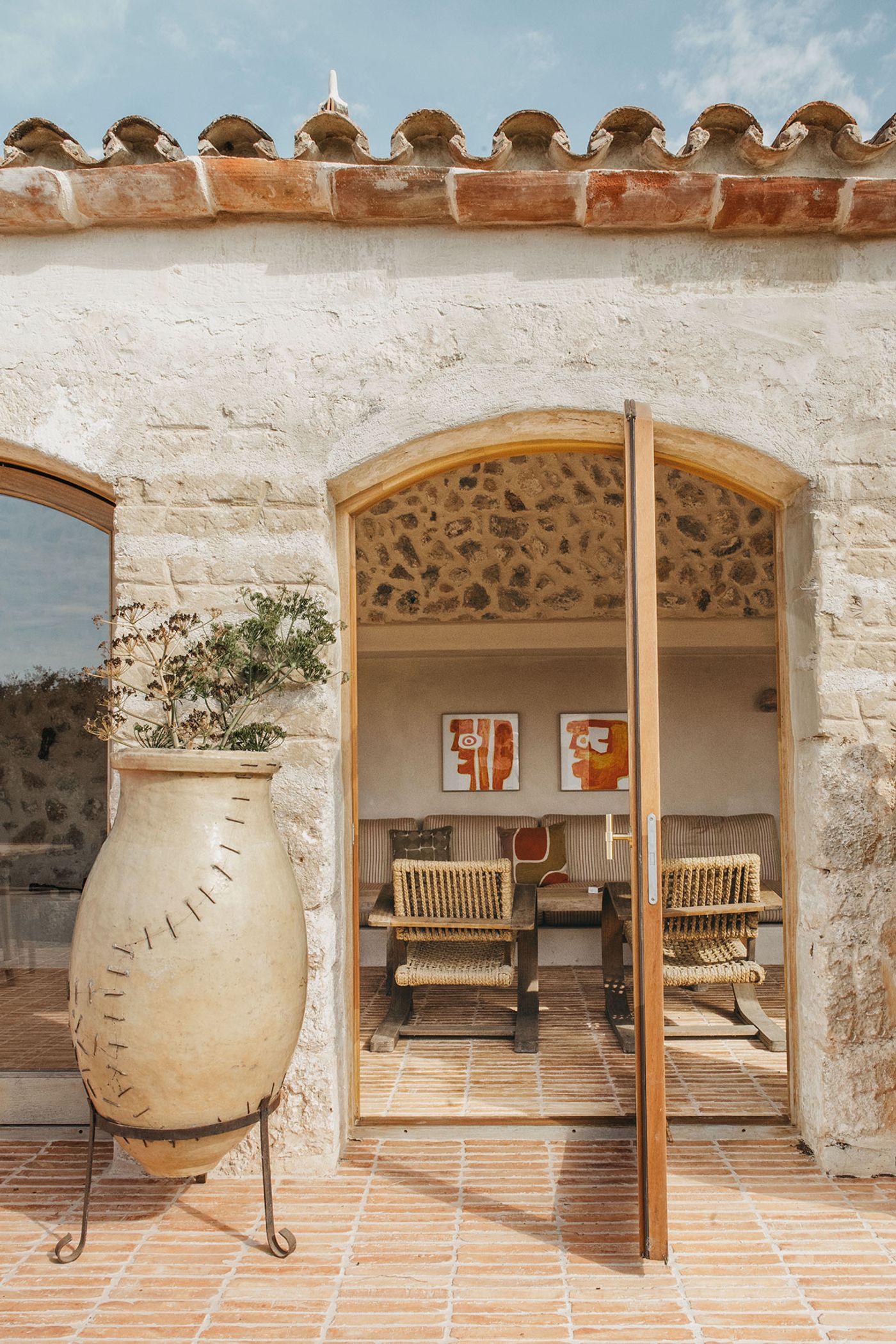
Photography by Maria Missaglia.
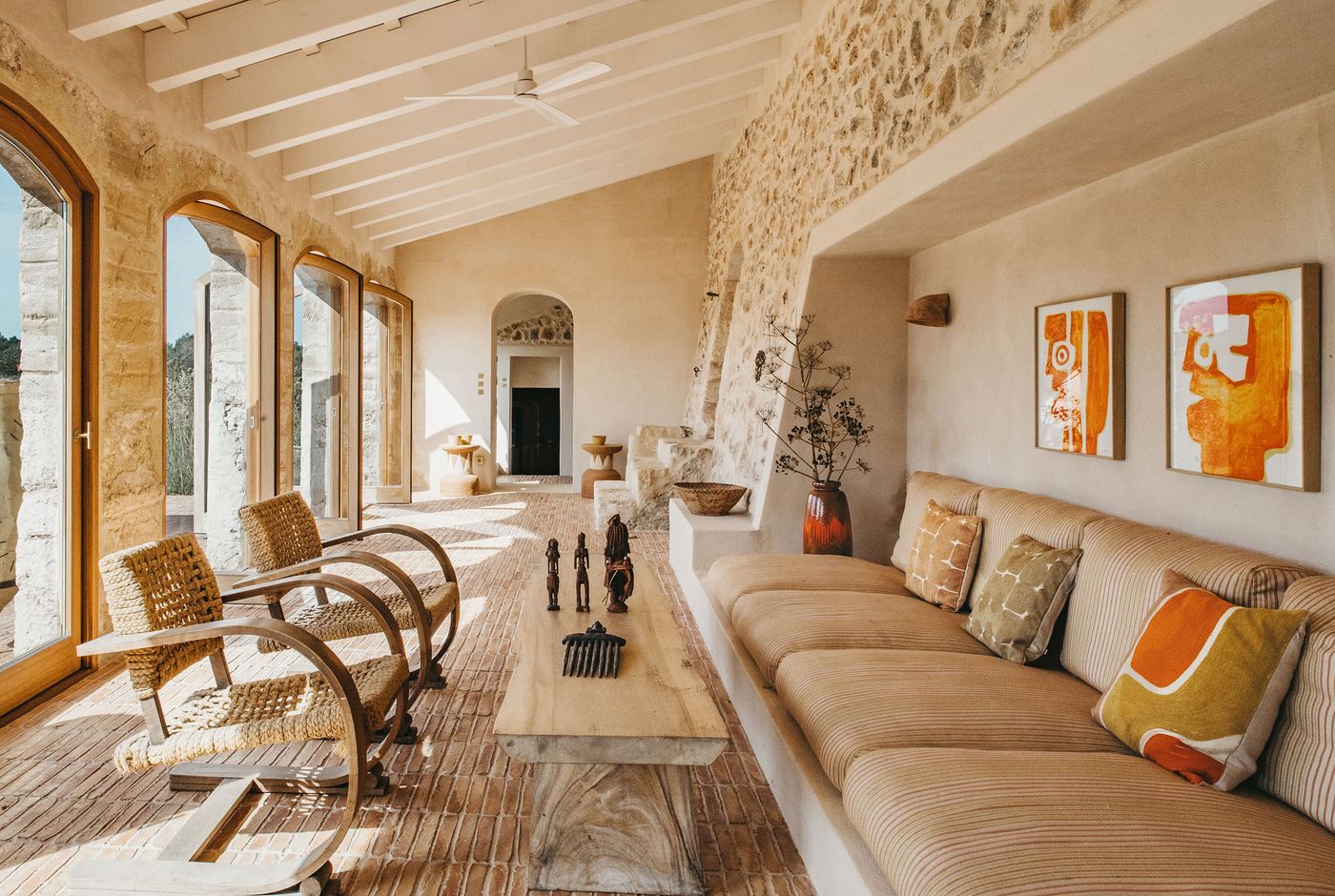
Photography by Maria Missaglia.
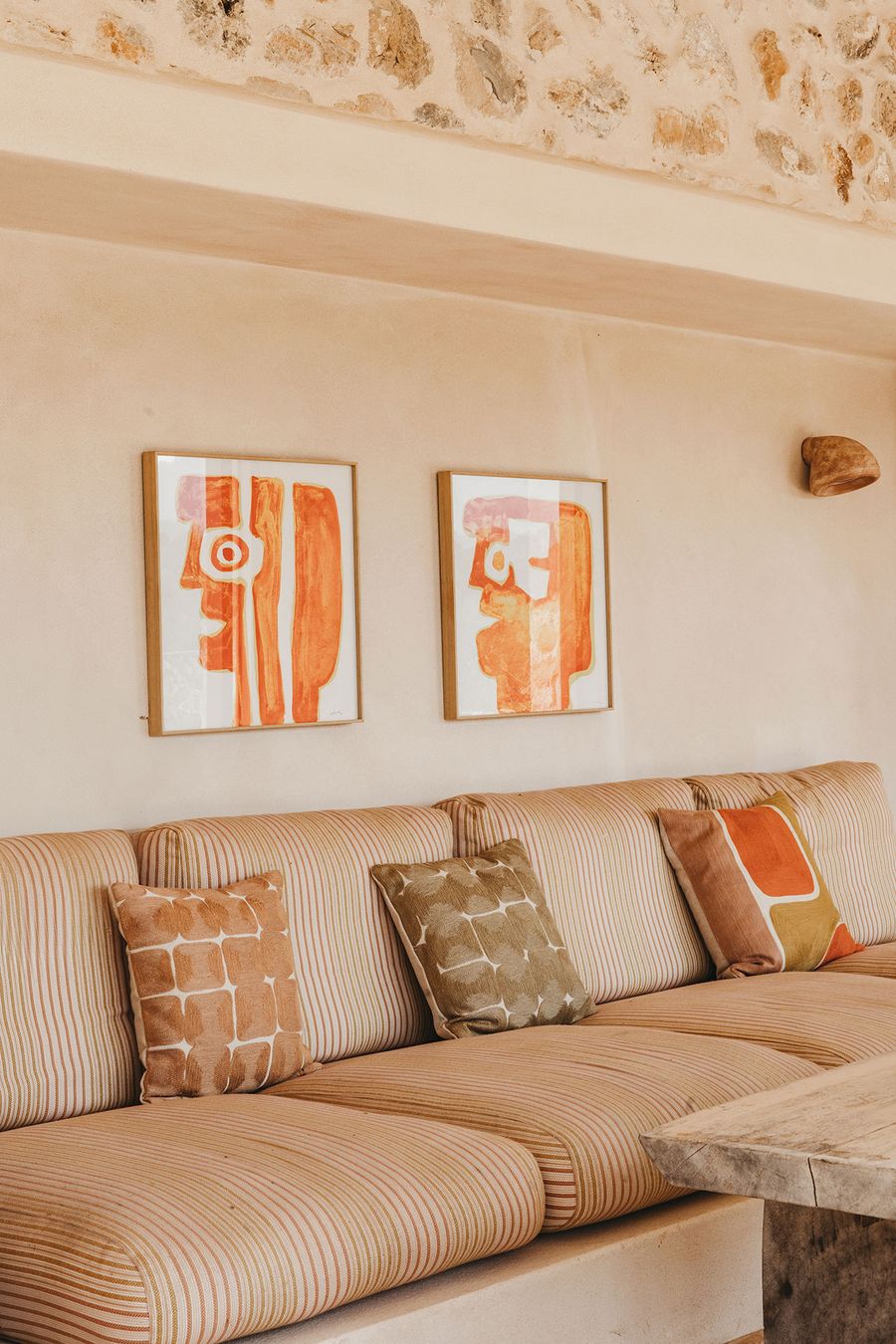
Photography by Maria Missaglia.
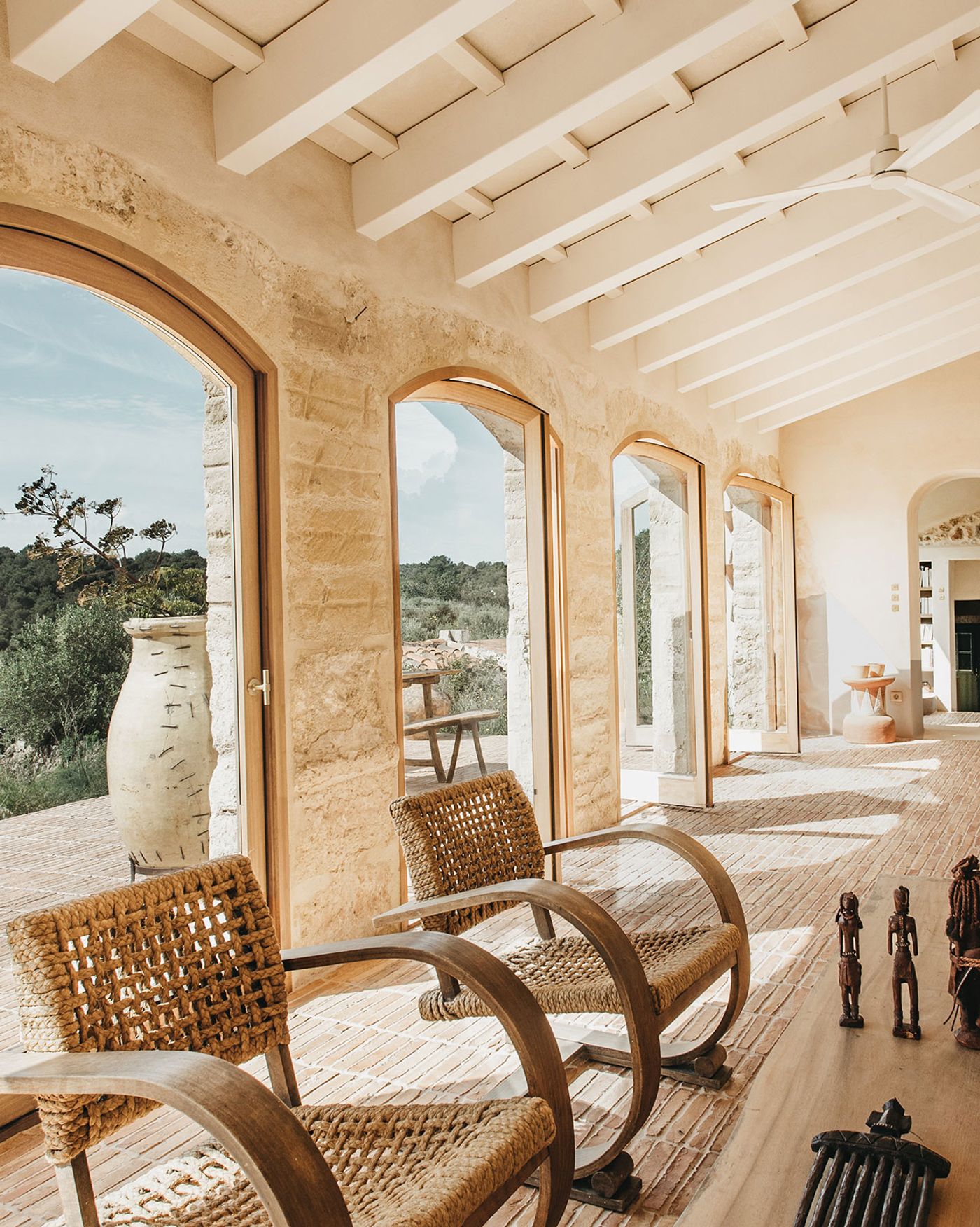
Photography by Maria Missaglia.
The house’s finishes—a tactile mix of exposed stone and limewash—honour traditional Menorcan techniques, while the preservation of the building’s distinctive inclined walls reinforces the architectural language of the island. The natural patina of materials, including terracotta tiles, timber furnishings, and stone washbasins, further ensures an enduring connection to the land, blending authenticity with timeless elegance.
Juxtaposed with its vernacular roots, modern interventions shine in the details. A series of six windows in Iroko wood bring a minimalist edge to the barn-turned-living room, their off-centre pivoting design maximizing natural light and framing unobstructed views. In the kitchen, glazed ceramic acid-yellow tiles, handmade in Mallorca, inject a playful energy, contrasting with the otherwise subdued palette of earthy tones and natural finishes.
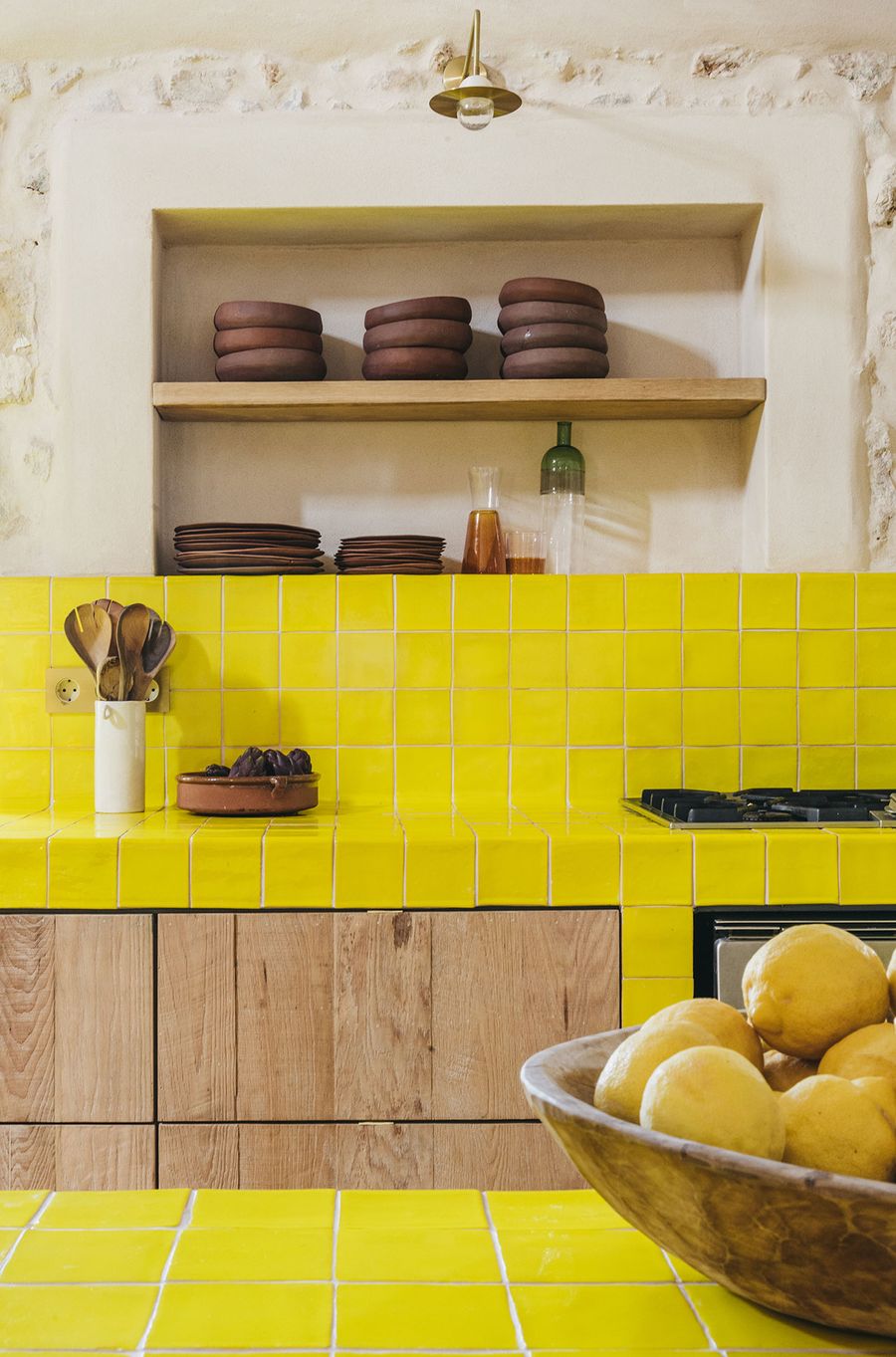
Photography by Maria Missaglia.
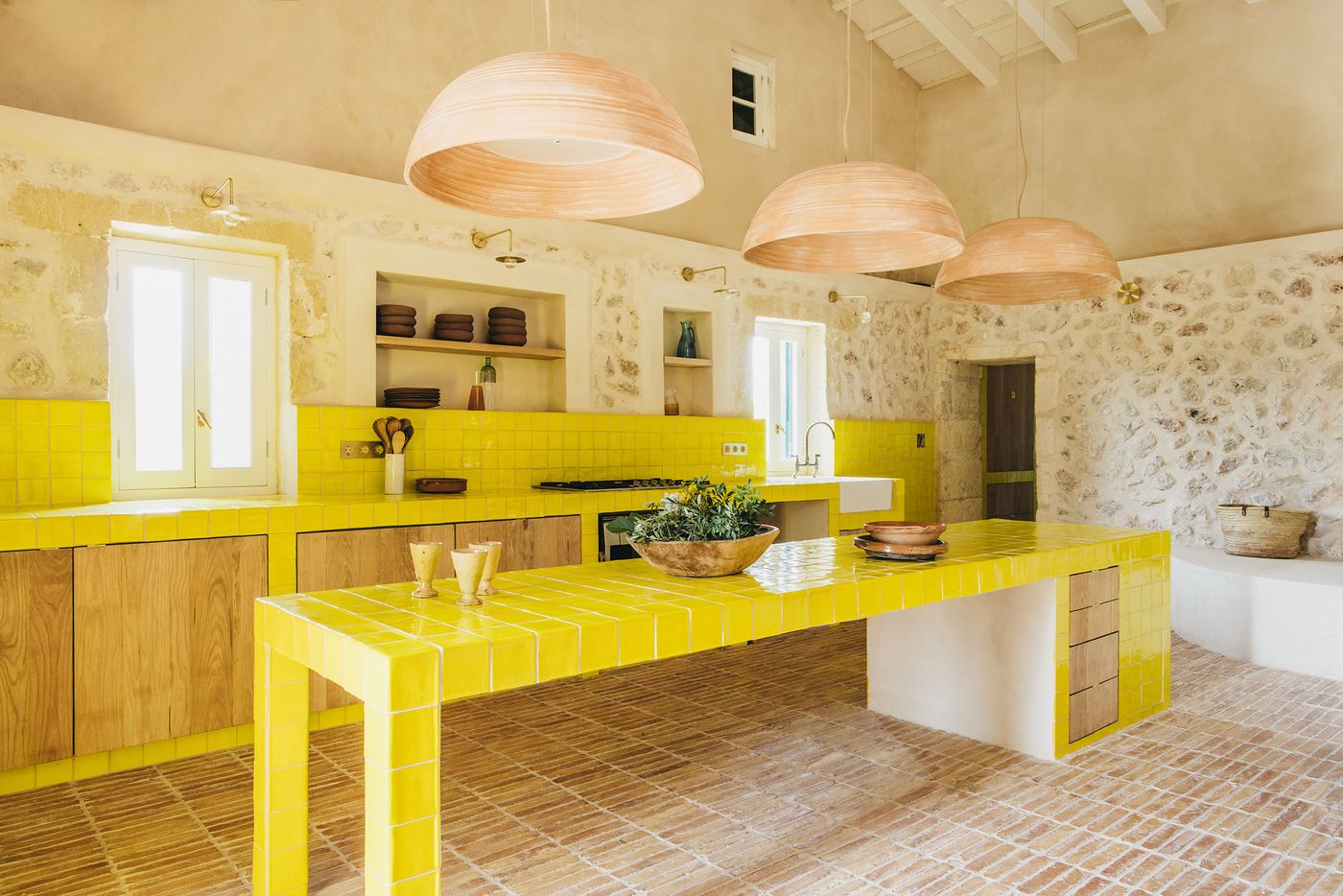
Photography by Maria Missaglia.
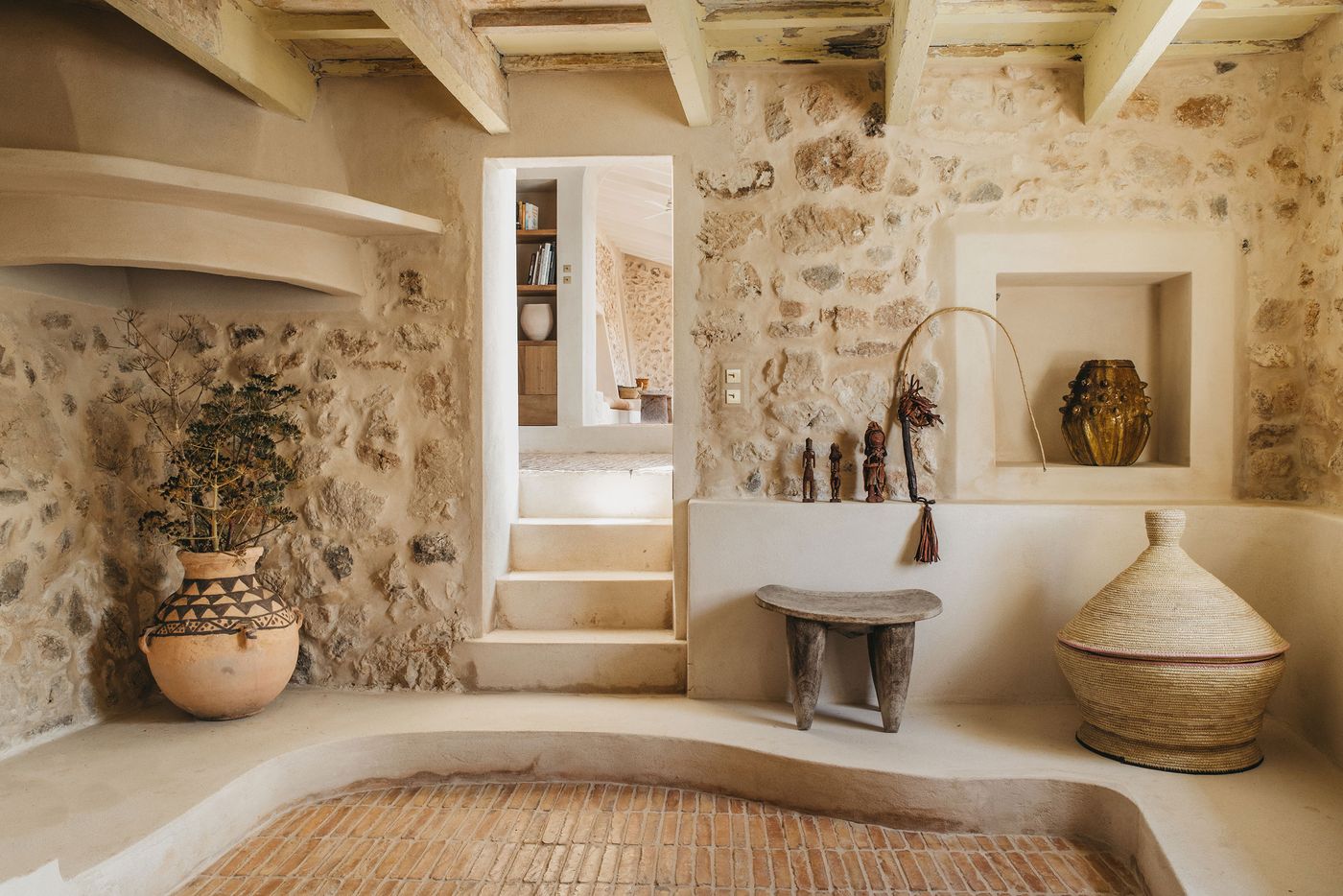
Photography by Maria Missaglia.
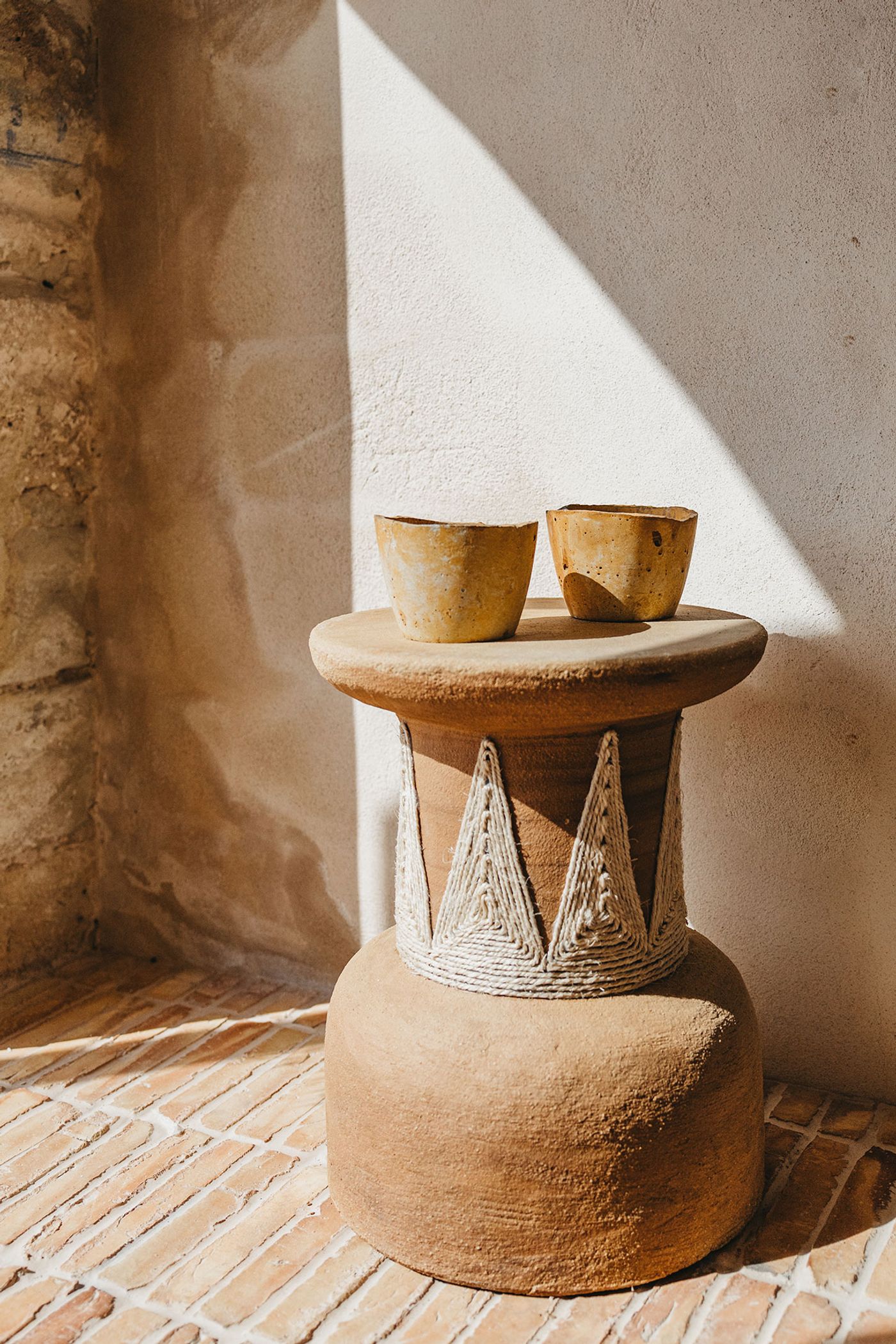
Photography by Maria Missaglia.
The selection of furniture, a mix of antiques and newer pieces, amplifies the scheme’s vernacular authenticity thanks to raw, natural materials and craftsmanship. From vintage treasures like Adrien Audoux & Frida Minet’s 1940s-designed Rope Easy Chair, to bespoke pieces like terracotta side tables decorated in rope that the architects designed specifically for the project, every item reflects a deep engagement with materials. Decorative objects like vases and headboard tapestries woven by local artisans add a layer of artistry while a collection of artefacts sourced from around the world, courtesy or the owners’ travels, further add to the house’s artisanal charm.
The use of natural materials and artisanal techniques also extends seamlessly into the outdoor areas, where terracotta tiles line a terrace overlooking the rolling countryside along with a pool terrace nestled within a Mediterranean garden alive with wild olive trees and aromatic garrigue. It is a testament to Atelier du Pont’s thoughtful design that the newly added pool feels as though it has always belonged, embodying the seamless integration of old and new. This seamless combination of the old and new ultimately exemplifies the art of respectful renovation, where history and modernity converge in perfect harmony, creating a Menorcan retreat that stands as a true ode to place, craft, and heritage.
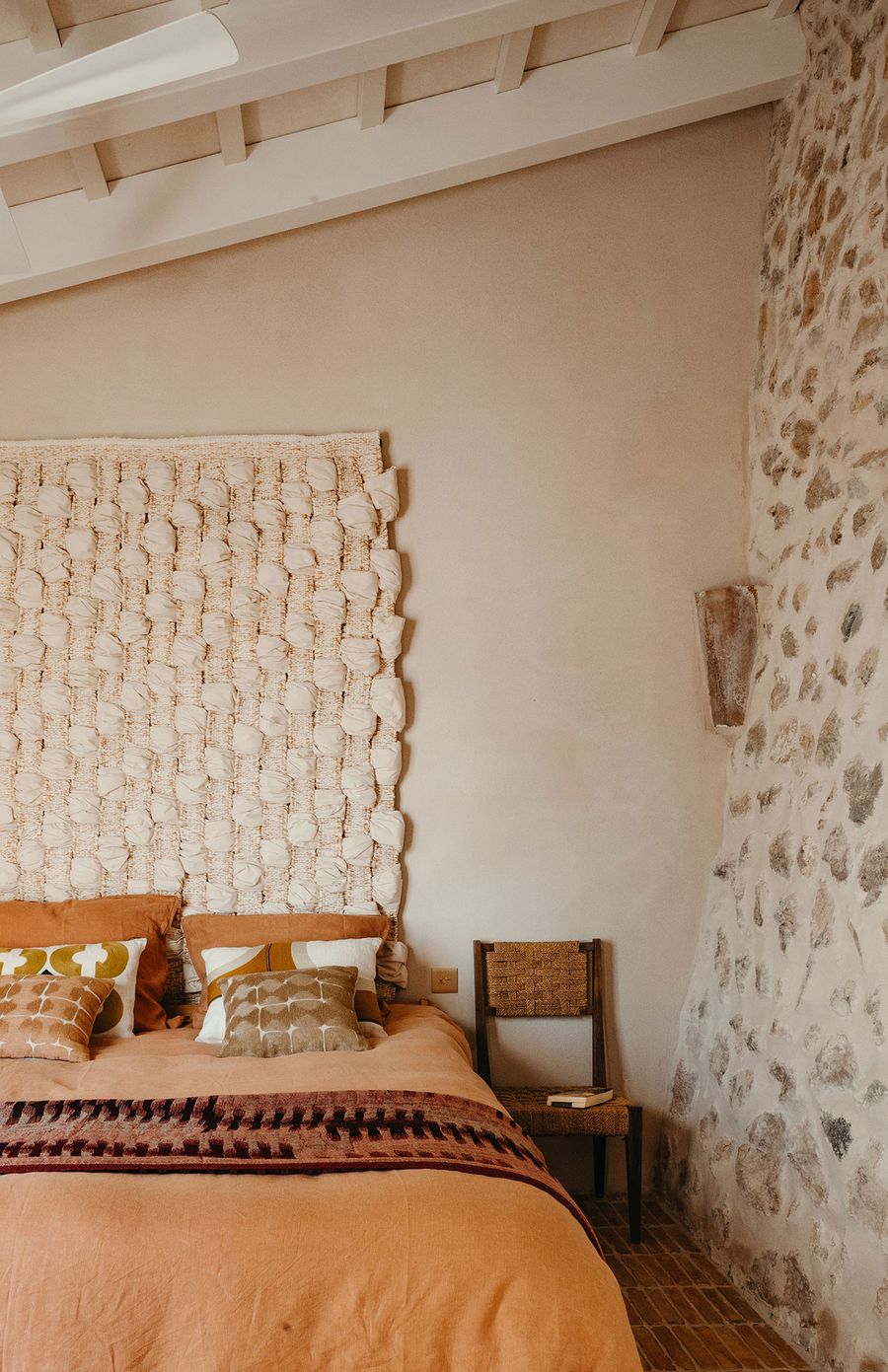
Photography by Maria Missaglia.
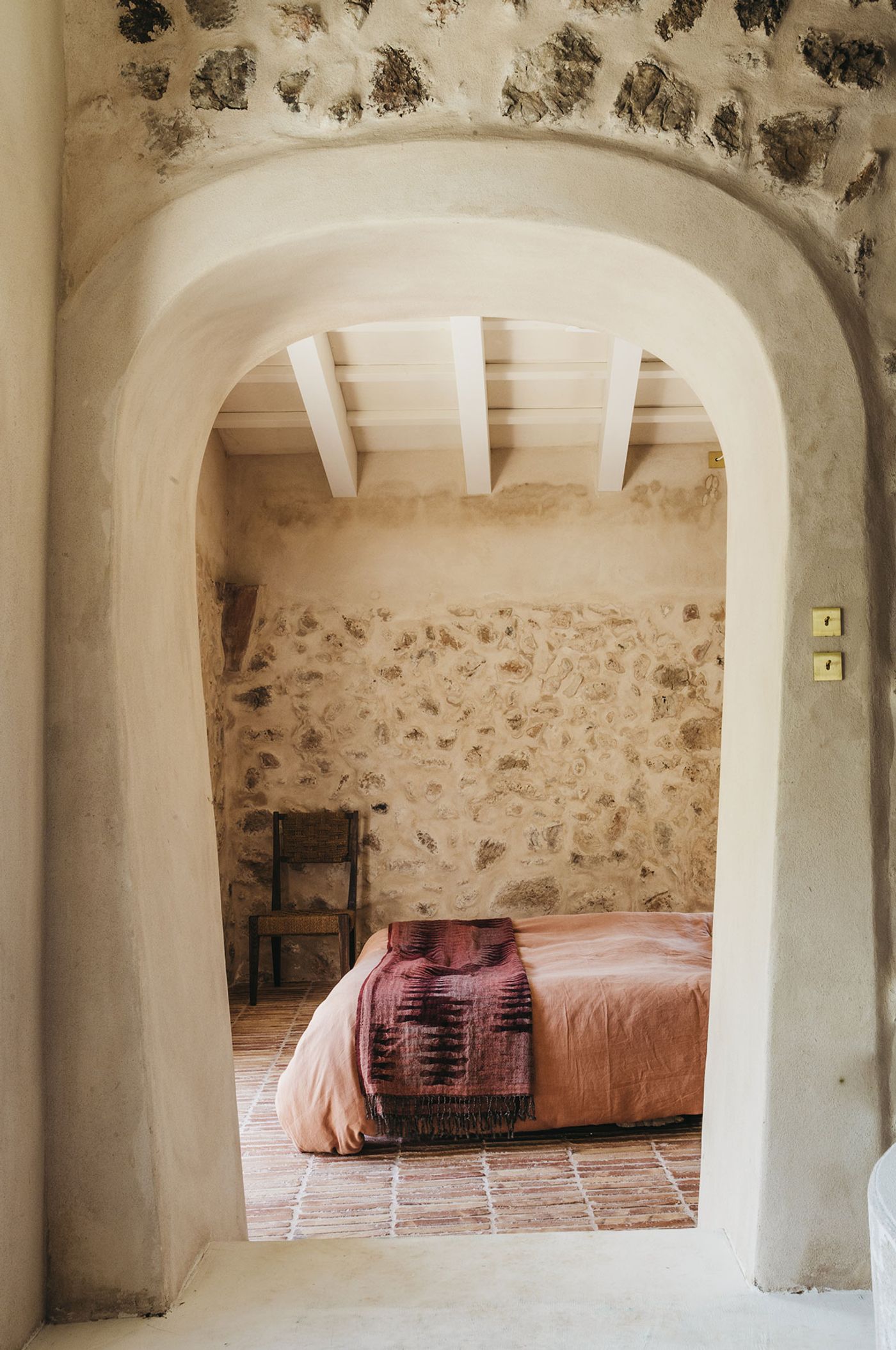
Photography by Maria Missaglia.
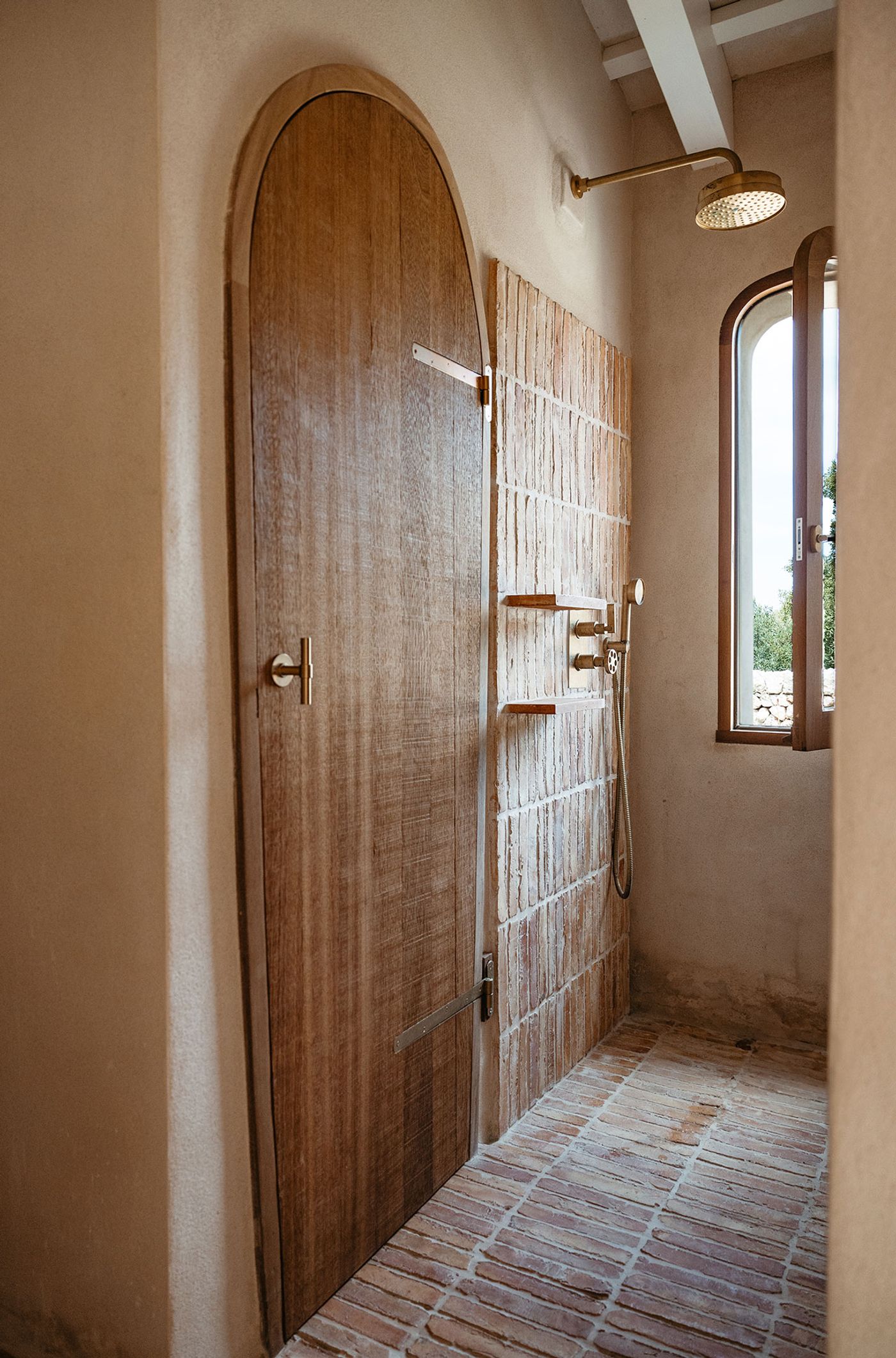
Photography by Maria Missaglia.
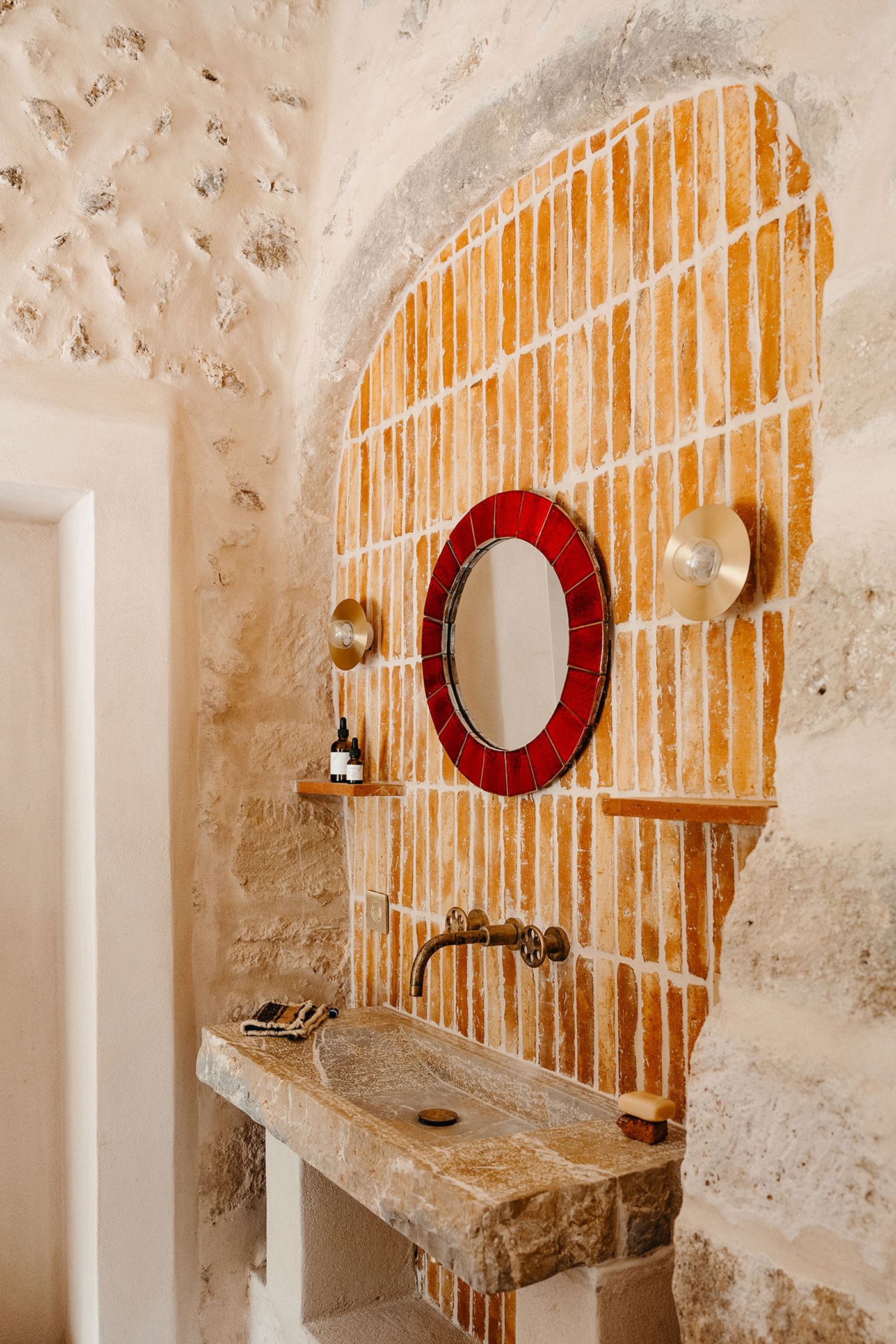
Photography by Maria Missaglia.
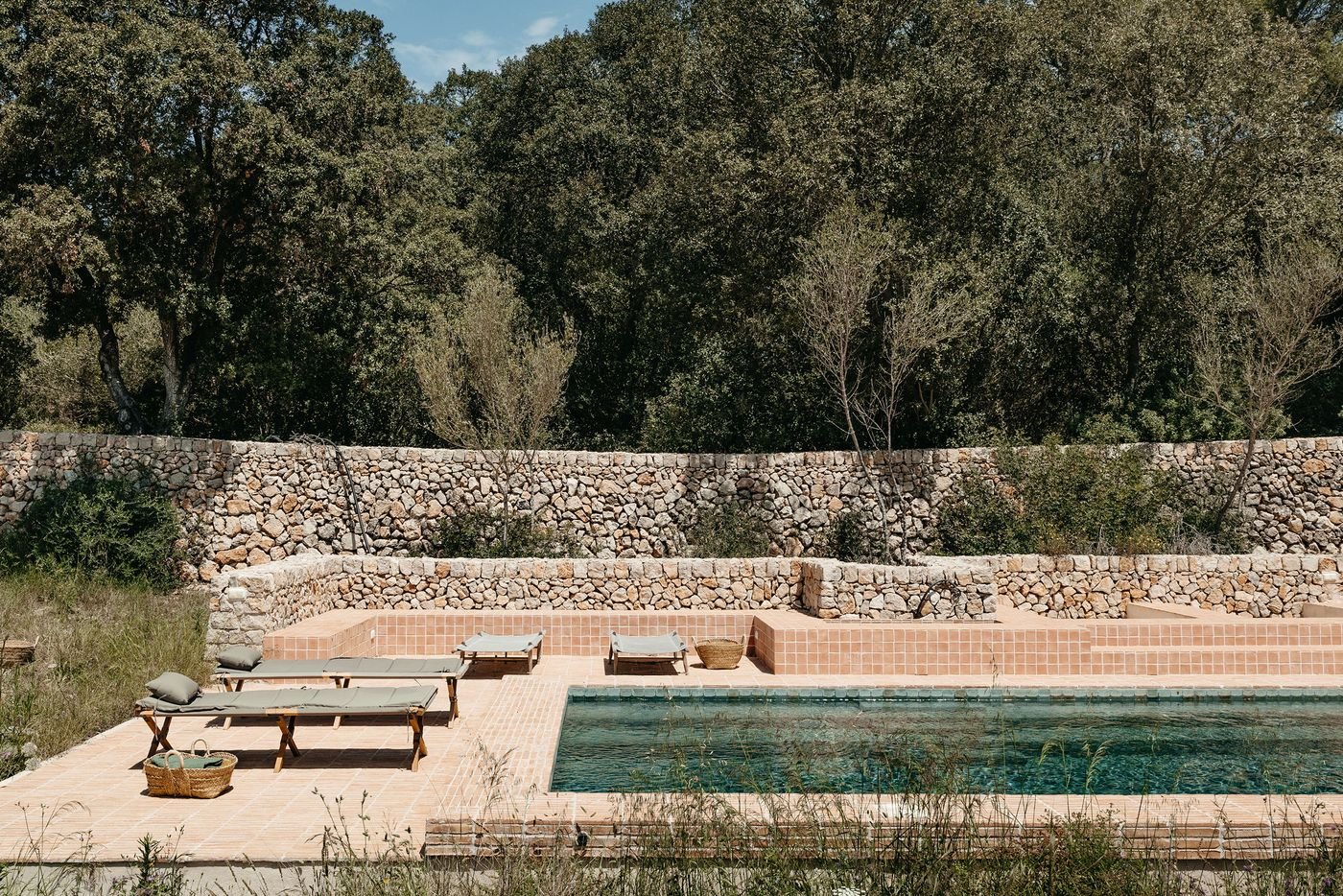
Photography by Maria Missaglia.
